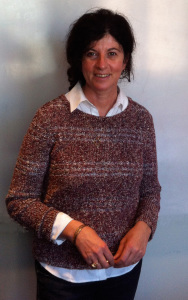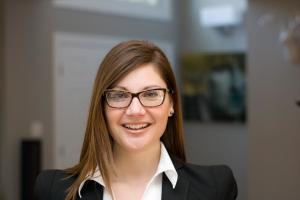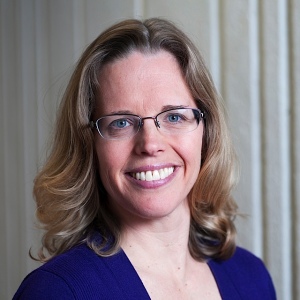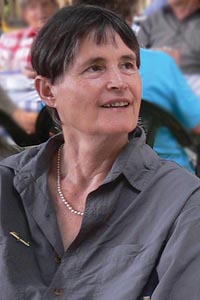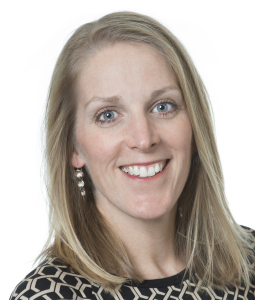by Karen Chien, PhD.
 Dr. Joan Cook-Mills, PhD, is a Professor in the Division of Allergy-Immunology at Feinberg School of Medicine, Northwestern University.
Dr. Joan Cook-Mills, PhD, is a Professor in the Division of Allergy-Immunology at Feinberg School of Medicine, Northwestern University.
Joan is a well established investigator who has published over 50 peer reviewed articles in journals including the Journal of Physiology-Lung and the Journal of Immunology. Her research interests range from leukocyte migration during inflammation and allergic disease to the signaling of vascular endothelial adhesion molecule (VCAM-1). One of her most important findings involves the regulation of lung function by vitamin E isoforms. She discovered that when humans consumed gamma-tocopherol, the form of vitamin E found in corn, soybean, and canola oils, there was an association with a higher incidence of asthma; the consumption of alpha tocopherol, the vitamin E isoform present in olive and sunflower oils, was associated with increased lung function. Her work uncovered mechanisms in which vitamin E can regulate the immune system. This work of paramount importance in understanding the health benefits of vitamin E has been featured internationally in media and magazines including MORE Magazine, Medical Daily, and the New York Times.
Joan spent her childhood in the small town of Charlevoix in northern Michigan, where there were only two stoplights when she was growing up! She has always had an interest in science and medicine. Although she majored in pre-medicine during college, she found that she wanted to pursue research after talking to professionals in different areas. She became intrigued with immunology after a recruitment summer internship in an immunology focused lab within the biochemistry department at Michigan State University. After receiving her PhD, she completed postdoctoral research in the field of neuro-immunology at the University of Illinois at Chicago. She then spent 13 years as faculty at the University of Cincinnati, where she enjoyed working with and being surrounded by immunologists, before coming to Northwestern.
Joan chose the academic track because of a good personality fit and interest level in science. But most importantly, she enjoys being able to dive deep into the interesting questions while exploring scientific literature. Ultimately, she hopes that her work can unravel biological mechanisms of the human body that can be used to help people live better and healthier lives. Her background allows her to be creative and to study the interface between immunology, vascular biology/cardiology, neurology, signaling, and nutrition.
The motivation and drive that Joan brings to the lab is inspiring to her students and mentees. Joan has mentored many students as part of the Summer Research Opportunities Program with a focus on minorities as well as trained many women of all ages. Her dedication to research is shown by her commitment to constantly working directly at the bench alongside her students. The reason why she remains active in the lab is that “doing the experiments helps to troubleshoot with students”. Her greatest satisfaction as a mentor and professor comes from seeing a student reach the “Eureka!” moment in understanding a scientific concept. She highly encourages women to seek resources and training through different programs. This exposure gives opportunities to talk to others to find out what one is good at and passionate about; both men and women mentors can have very complementing but unique perspectives which can be helpful. Also, she emphasizes that networking and maintaining a network is important for growth and success in science. Her main advice to young scientists is, “Do whatever you really like doing because you’re going to be doing it a lot”. Being passionate about your interests in your life is critical, and also “Never give up. Don’t ever be afraid. Just go for it!”

